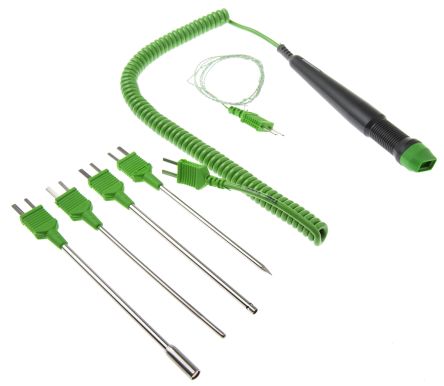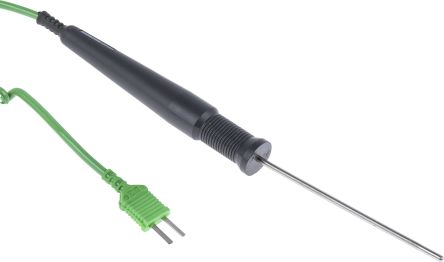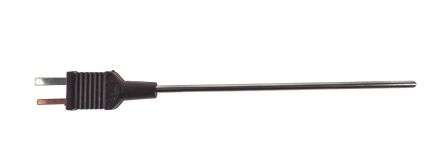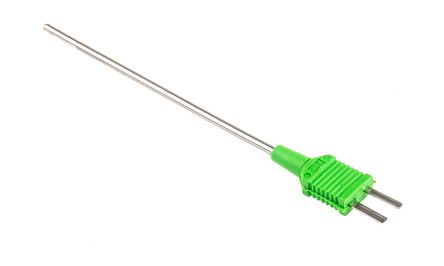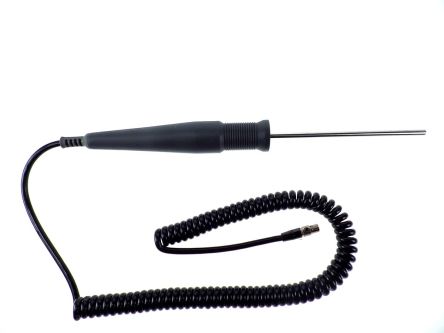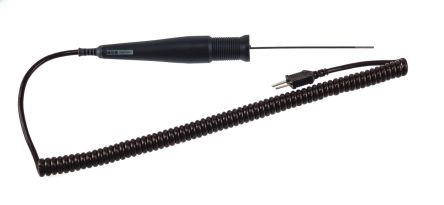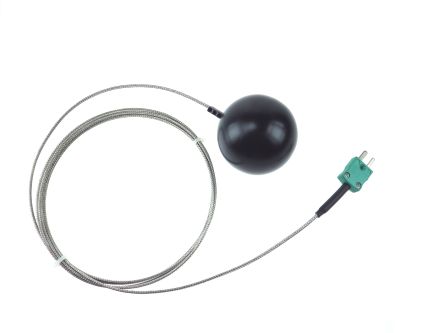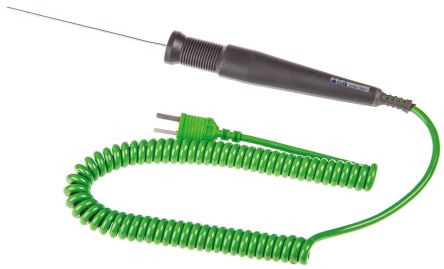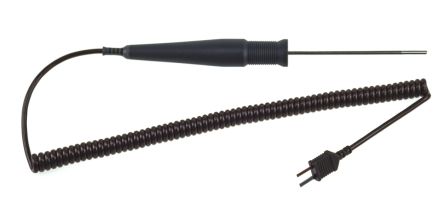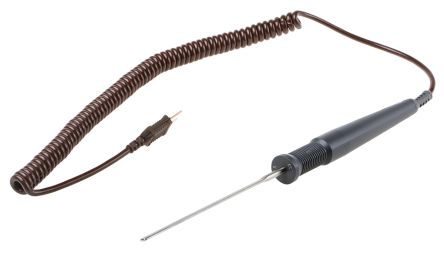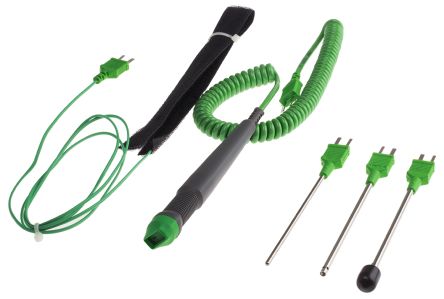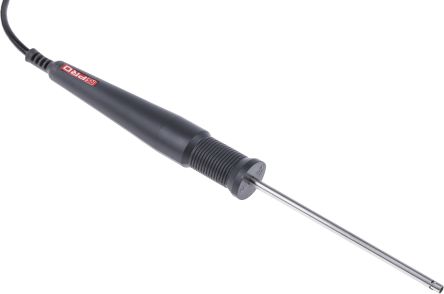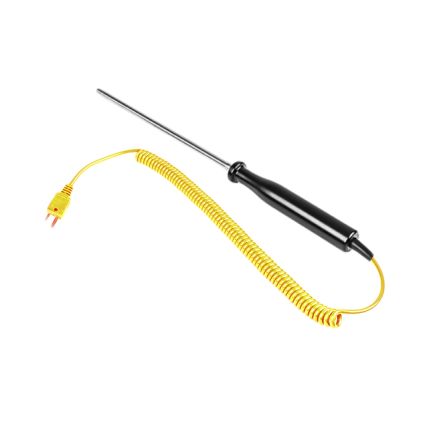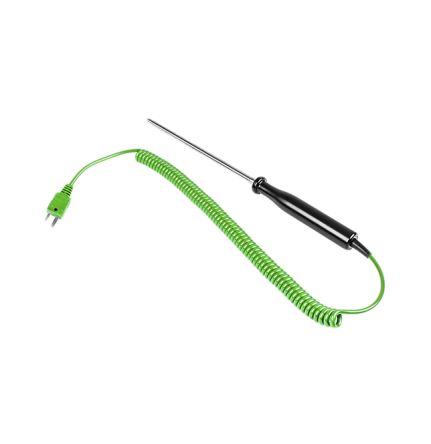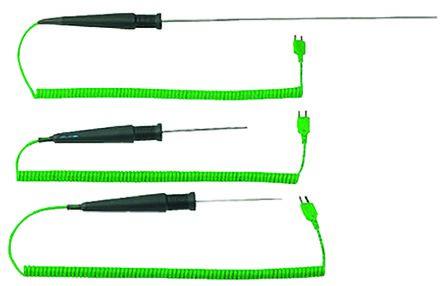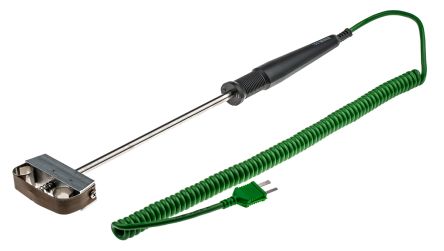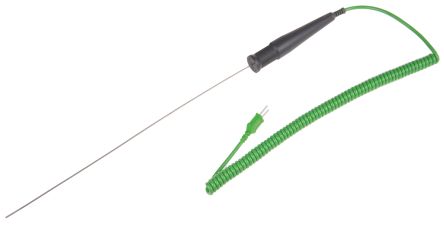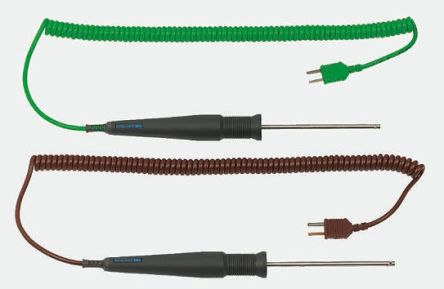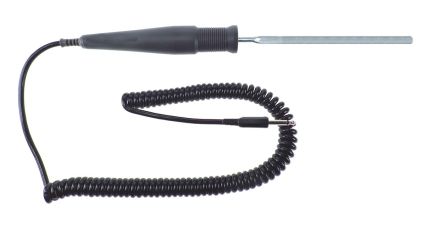- Automation & Control Gear
- Cables & Wires
- Enclosures & Server Racks
- Fuses & Circuit Breakers
- HVAC, Fans & Thermal Management
- Lighting
- Relays & Signal Conditioning
- Switches
- Batteries & Chargers
- Connectors
- Displays & Optoelectronics
- ESD Control, Cleanroom & PCB Prototyping
- Passive Components
- Power Supplies & Transformers
- Raspberry Pi, Arduino, ROCK, STEM Education & Development Tools
- Semiconductors
Temperature Probes
Temperature probes are used to make measurements of air, liquid or surface temperatures and are available in various forms such as thermocouple, thermistor and PT100 to complement thermometers and temperature data logging instrumentation. The internal sensor of the probe produces a voltage that varies with temperature, this voltage is then read by the connect instrumentation to give a measurement. Temperature probes feature varying lengths of cables and in most cases a plug to offer quick and easy installation. Constructed from stainless steel, temperature probes are heavy duty making them suitable for harsh environments within industrial or commercial settings. All this whilst providing highly accurate and reliable measurements. You can find out more in our temperature probes guide.
What are the types of Temperature Probes
- Resistive Temperature Detectors (RTD) - An RTD is also known as a resistive temperature detectors, these are highly precise temperature probes that are constructed by highly conductive metals, such as platinum, copper or nickel. Offering a wide range of temperatures, however longevity can be an issue, so will need replacing often.
- Negative Temperature Coefficient (NTC) thermistor - Temperature thermistors reflect changes in temperature quickly and to a very high accuracy. Often lower in cost, but offer a smaller temperature range.
- Thermocouples - Thermocouples are the most commonly used temperature probe, this is because of the simplicity, speed of response to the change in temperature. Thermocouples are less stable over time and will need replacing more often. There are many types of thermocouples, all made from different materials which allow for various temperatures. The most common is a Type K thermocouple, which has a temperature range of -180 to 1300 degrees Celsius.
Typical Applications for Temperature Probes
Temperature probes are known for their robust design meaning they are ideal for many general-purpose industrial, commercial and scientific applications where accurate temperature measurement and monitoring are key. They are also essential in ensuring equipment is functioning correctly or accurately measuring during testing and investigations. These sensor probes are often used in the following areas:
- Air conditioning and refrigeration
- Chemical industry
- Plastics processing
- Stoves and grills
- Food processing
- Laboratories
